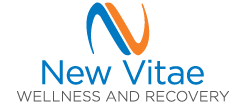Nearly one-third of all brain injuries occur in adults of working age who were employed before their injury. Whether or not someone who survives a traumatic brain injury (TBI) returns to work, in any capacity, will often depend upon the severity of the injury, the parts of the brain that were impacted, and the progress of their rehabilitation.
Studies have shown that a return to work for brain injury survivors improves overall quality of life. Returning to work can also improve focus, help individuals feel productive, add structure to the day and increase social contact. At a macro level, lost wages and increased dependence on government and other financial support contributes to the yearly cost of brain injury.
There are factors that can improve the chances of returning to work. Research has found support for specific post-TBI service provisions that can help people return to work:
Providing vocational rehabilitation services early in the rehabilitation process (through OVR for example).
Creating a supportive work environment.
Supplying assistive technology and training in its use.
A phased return-to-work approach (volunteering, part-time, or moving up to full-time work, if possible)
Providing rehabilitation in areas of cognitive rehabilitation, speech, occupational and physical therapy.
The Action Recovery program of NVWR offers ways for all these services to be available for our residents return to work. We utilize a phased return-to-work approach, starting out with offering volunteer options for our residents in their home environment or at Neurocognitive Structured Day program.
Having the courage to work through the impact of a TBI by returning to work in any capacity builds self-confidence and that helps to build self-esteem, which ultimately increases Quality of Life!
Dr. Mary S. Cowgill





